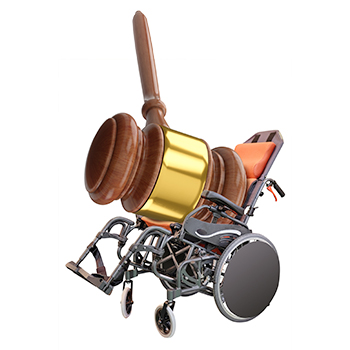
Serious injuries can happen at any time, whether you’re at home, at work, out with friends, or in the car. If you sustain a car accident, medical malpractice incident, or other personal injury due to someone’s actions or negligence, you may have legal recourse. Learn about the steps for filing a personal injury claim and find out how an experienced lawyer can help you get the best possible outcome for your case.
1. Take Action as Quickly as Possible
After a major accident or a serious injury, it’s normal to have a long list of worries. For example, you might have to spend extended time in recovery, take time off work, and handle expensive hospital bills. Adding another task to your list is likely to be the last thing you want to do.
However, it is important to act as quickly as possible, especially when legal matters are at stake. Every state has its own statutes of limitations or deadlines for filing lawsuits and pursuing other legal claims. The statute of limitations for your potential lawsuit depends on the type of incident you experienced, where you sustained the injury, and other circumstances.
It’s also important to begin documenting your injuries and treatment plan as soon as possible in order to prove the seriousness of your injury.
2. Consider the Insurance Policy
In many cases, an insurance policy that you or the other party holds may be able to cover some of your expenses, especially if the other party is clearly at fault.
For example, if you sustain injuries in a car accident that was caused by someone else, the other driver’s insurance might pay for your medical expenses. Likewise, if you get injured while slipping and falling at a store, the property owner’s liability insurance may cover your costs.
A personal injury lawyer can help you assess the insurance coverage available to you, your likely compensation, and help you estimate the costs associated with your injuries.
3. Talk With a Personal Injury Lawyer
It doesn’t matter how generous the other party’s insurance policy is, how clear-cut your case might be or how significant your injuries are. It’s always in your best interest to consult with a personal injury lawyer before moving forward. Be sure to seek out a law firm that has extensive experience with personal injury lawsuits so you can feel confident that you’re getting informed advice.
In many cases, you don’t have to pay anything upfront when you go over your options with a lawyer. At Janet, Janet & Suggs, we offer complimentary consultations to help you understand the strength of your case and your legal options. Because our clients don’t pay us unless they recover compensation, you can rest assured that there are no fees unless you win.
When you talk with our legal team, you can expect to learn how a case like yours would work and get more information about potential outcomes. The results of personal injury cases can vary significantly. Some plaintiffs opt to settle out of court after receiving a satisfactory offer from the defendant. In other instances, cases go to court, and then a judge or jury determines a verdict.
4. Decide Whether to File a Personal Injury Lawsuit
To get the result you want from a personal injury lawsuit, it’s essential to consider whether the other party’s negligence caused your injury. When advising you about your lawsuit, our team considers four aspects:
- Duty: The defendant must have a legal responsibility to you as the plaintiff. For example, a property owner or a driver may have a legal duty to you.
- Breach: The defendant must have failed to live up to the legal responsibility, or duty, owed to you. For example, a property owner’s failure to maintain their building or a driver’s failure to stop at a traffic light could be a breach of duty.
- Causation: The defendant’s actions or lack of action must have caused your injuries. For example, your legal team has to prove that the property’s poor condition or the driver’s failure to stop caused your accident and resulting injury.
- Damages: As the plaintiff, you must have incurred expenses from the resulting personal injury. For example, your hospital bills after the accident may prove your damages.
You don’t have to make the decision to file a personal injury lawsuit alone. The accomplished personal injury lawyers at Janet, Janet & Suggs are at your service. Contact us for a free case evaluation to learn more about your options so you can make the right decision for you and your family.
